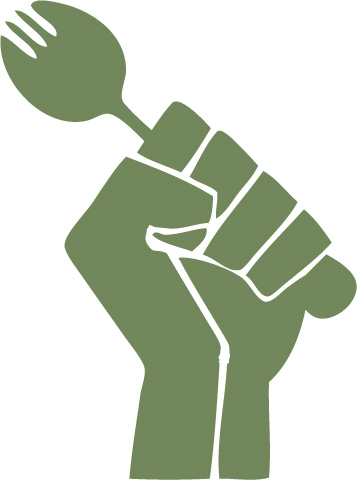Malaika’s Team Pick:
One of the things I’ve learned and that people have told me about New York is that there are fewer healthy eating options in areas where people of colour are the primary demographic. Neighbourhoods with lower median incomes are high on the Burger Kings but not so much on the Whole Foods. That’s why when I read Toi Scott’s “Queering Food Justice” in Decolonizing Yoga, I found myself nodding yes, yes, yes to everything, and I’m so excited for all of you to now read this great piece and tell me what you think. Or maybe you don’t want to tell me because you’re one of Autostraddle’s many readers who don’t comment? That’s fine too! The important thing is that you talk…with your mom, with your friends, and with your OKCupid date about issues of food accessibility, security, and justice. Instead of judging people on whether or not they eat meat and have organic kale with every meal, we should be asking ourselves who has access to healthy food and why.

Scott begins the piece like this:
If you’re a person of color with a low income it’s important for you to know that conversations about your ability to access foods, yes, conversations about your very well-being are happening behind your back.
It also goes on to explain how intersectionality and food, well, intersect:
Where we sit at the intersections of race, gender, class and sexuality makes us highly vulnerable and subject to the policing of our food and economic system. Our lack of resources, especially TIME, allows for outsiders (and sometimes even well-meaning allies) to come in and make decisions FOR us – maybe even AS us – based on their assumptions and their own personal beliefs about what will make our community better.
There are also ideas for what you can do to radicalize your food consumption. However, as Scott points out, it’s important to remember that there is no uniform definition of what constitutes radical. Instead, it depends on an infinite number of things, like your economic situation, your race, your home environment, etc. So if being radical for you is as simple as buying more bananas because they’re the cheapest fruit you can afford, go you! Don’t let anybody make you feel like you’re not doing enough. And if being radical means throwing a queer potluck, have fun and maybe ask out the girl next to the homemade veggie chilli, because she’s probably me.
Once you’re finished reading about queering food justice, you should check out the rest of the site! Decolonizing Yoga (Where Spirituality Meets Social Justice) is a great online resource that highlights the voices of “queer people, people of color, disability activists and more in relationship to yoga and countering oppression in general.” It was started by transgender writer and activist, Be Scofield, and there’s even a Facebook page you could check out after you’re finished reading Toi Scott’s piece and crushing on the website in general.







